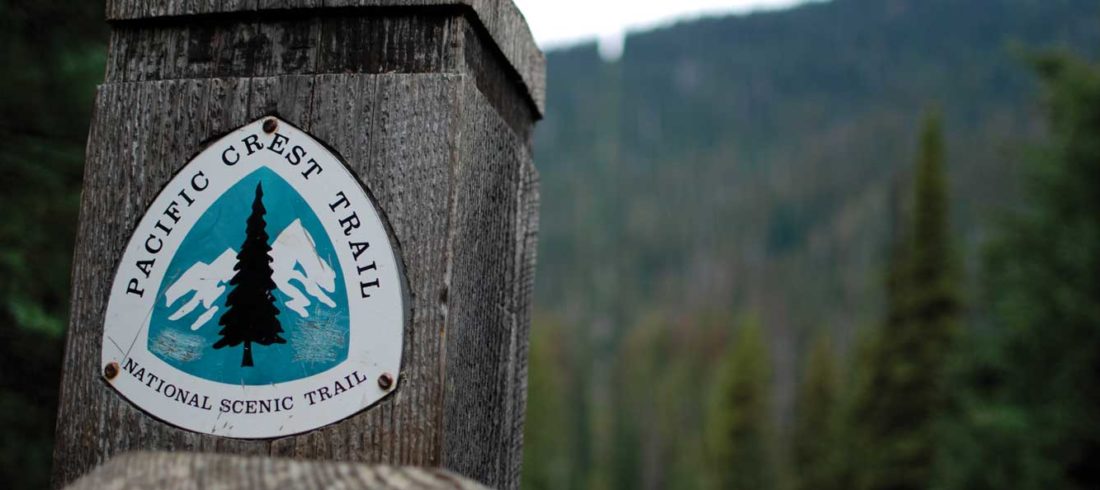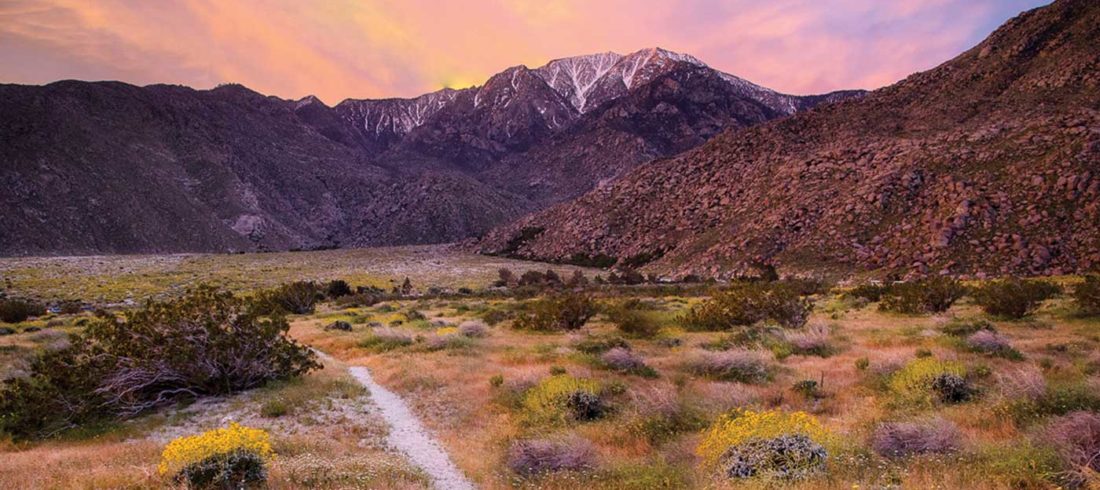A little more than an hour’s drive from Eugene, an outdoor corridor offers the adventure of a lifetime.
The Pacific Crest Trail, the second-longest trail in the United States, spans 2,650 miles from the Mexican border to the Canadian border, weaving through searing deserts, rugged peaks, verdant forests, and volcanic moonscapes. Hikers brave the Mojave Desert, traverse the entire Sierra Nevada and Cascade mountain ranges, pass the tallest peak in the lower 48, go through six national parks, cross the Bridge of the Gods over the Columbia River, and hike into Canada. Those attempting the trail’s entire length typically spend a year training, refining their gear, preparing financially, and working out trip logistics before undertaking the four- to six-month endeavor.

For those interested in long-distance hiking but unable to take on quite that much trail, Oregon’s 455-mile stretch of the PCT provides ample opportunity for adventure while remaining more logistically feasible. Running from the southern entry point at Donomore Pass in the Siskiyous to the Bridge of the Gods in the north, the Oregon segment offers hikers the Siskiyous’ unique landscape, picturesque alpine lakes, craggy mountain spires, volcanic intrigue, and colorful alpine meadows. Reasonably gentle trail grades, fairly frequent water sources, and moderate altitude changes make the PCT in Oregon an ideal first long-distance hike, and, regardless of hiking experience, this shorter PCT segment allows hikers to focus on the experience rather than marking miles.
“I’ve done the whole state of Oregon in one go,” says Mark Larabee, associate director of communications and marketing for the Pacific Crest Trail Association. “For me, it’s about the beauty and the friendship. I’m usually out on the trail with people I’m close to, enjoying the place. It’s about the time together and cool places to hang rather than making distance.”

What to expect
While the Oregon section of the PCT is fairly welcoming, hiking more than 450 miles is still challenging for most people. Hikers traveling 10 to 20 miles a day and taking a reasonable amount of rest days will take anywhere from one to two months to cross Oregon.
“Understand what you’re getting into,” Larabee says. “You are on your own out there, oftentimes far from help, and out of cell range. You must know your own limitations and be ready to survive if something goes wrong. Get outside and do a lot of day hikes. Find a partner to keep you motivated and to learn with. Learn how to be safe and protect yourself from the elements. Hiking long distances is extremely challenging, both physically and mentally. It takes a huge desire and a lot of fortitude to make it.”

Planning the adventure
Well before the trip begins, hikers need to not only prepare themselves and their gear but also work out the logistical details. They should plan transportation to and from the trail, for the beginning and end of the trip and also for any time they might want to spend in a nearby town to shower, resupply, and rest.
As long-distance hikers typically carry no more than 10 days of food with them at a time, it’s important to build a resupply strategy. This can consist of purchasing food in towns the trail runs close to, mailing supplies to post offices in these towns, or meeting friends or family for food drops at road crossings, such as at Crater Lake, Diamond Lake, Willamette Pass, Santiam Pass, and Timberline Lodge.
Hikers should have their route planned, tell someone where they will be (roughly) at given times, and have emergency plans in place should something happen on the trail. Also, to continue to preserve the PCT and its surrounding wilderness, hikers need to learn “Leave No Trace” ethics, which can be found on the Pacific Crest Trail Association’s website and in most guidebooks.
“Test your gear and yourself,” Larabee says. “Find what works for you. Get in mental and physical shape to do longer and longer trips. Keep reading and try out what you learn. Figure out what you need to survive in all conditions. Try to lighten your load without getting rid of the essentials. The trail is totally reachable and fun for those willing to put in the time and the miles to make it enjoyable.”
Pacific Crest Trail Association, 1331 Garden Hwy., Sacramento, Calif., 916/285-1846, pcta.org, mkartcenter.org


